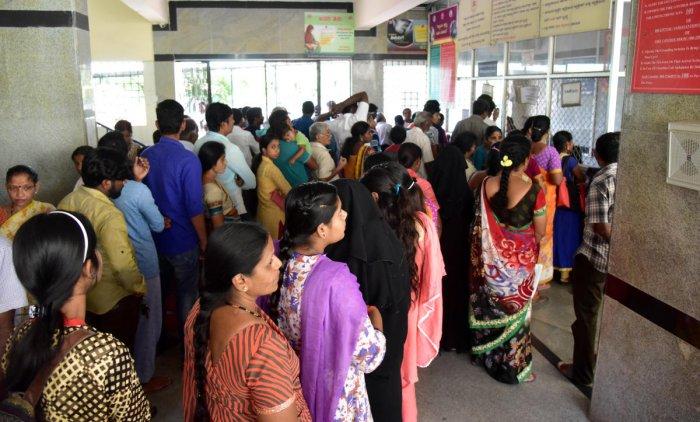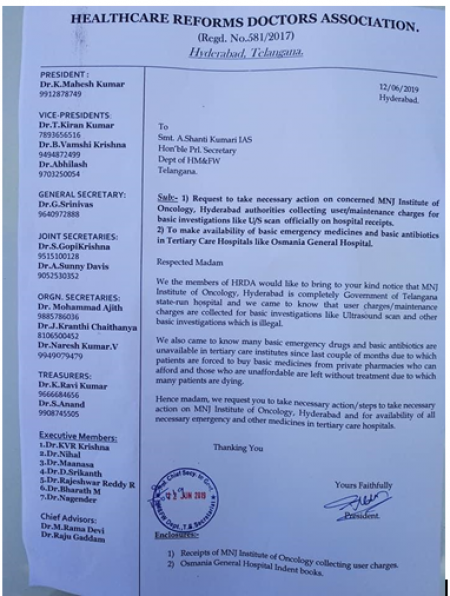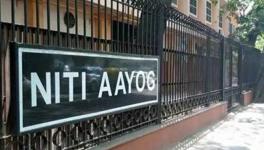Telangana: Medicine Shortage in Govt Hospitals, the Poor Bear the Brunt

Image Courtesy: Deccan Herald
In Telangana, if you are poor and planning to visit a government hospital for medical check-up, then be prepared for bearing the brunt of the state’s negligence attitude towards its public healthcare system.
According to an Indian Express report, state-run hospitals like Osmania General Hospital and Gandhi Hospital are facing an acute shortage of life-saving medicines and injections.
The shortage is so dire that even the patients who are covered under government’s Aarogyasri healthcare scheme are being asked by doctors to purchase medicines, IV fluids and dressing bandages from private shops, the report added.
Launched in 2014, the Aarogyasri scheme aims to make quality healthcare affordable and available to the members of Below Poverty Line (BPL) families. However, even poor people enrolled under the scheme are not spared from paying for prescribed medicines, which are supposed to be provided free at government hospitals.
Also read: Why Access to Healthcare is a Bigger Problem Than Quality in India
With many doctors have been alleging that the government has chosen a casual approach towards solving the issue, the crisis gained attention due to a letter written to A Shanti Kumari, Principal Secretary, Department of Telangana Health Medical and Family Welfare by the Healthcare Reforms Doctors’ Association (HRDA) on June 12.

Image of the letter submitted to Principal Secretary. Courtesy: FB timeline of HRDA
The letters states that, “Many basic emergency drugs and basic authorities are unavailable in tertiary care institutes since last couple of months due to which patients who can afford are forced to buy basic medicines from private pharmacies and those who cannot afford are left without treatment due to which many are dying.”
Speaking to NewsClick, Dr. G. Srinivas, General Secretary of HRDA said, “Despite informing the Telangana State Medical Services and Infrastructure Development Corporation (TSMSIDC) several times about the shortage of medicine, the concerned authority has neither taken any action nor solved the problem.”
It is the responsibility of the corporation to make available essential medicines of good quality, at all health facilities in the state.
Also read: Private Hospitals Making Profits Up To 1737%, Finds Study
“Due to this, many life saving drugs, such as Augmentin and Tramadol are unavailable in the state-run hospitals,” Dr. Srinivas added.
Shortage of Medicine – A Nationwide Phenomenon
Sadly enough, it has been a common scenario in most of the government hospitals in India to face a shortage in medicines or unavailability of basic health check up facilities.
Recently, it was reported in The Hindu that Delhi government hospitals are facing shortage of anti-rabies vaccine due to a shortage in supply.
In April 2019, it was reported that government hospital doctors in Chennai are forced to use high spectrum drugs or simply turn away patients due to shortage of essential drugs.
Reports of non availability of medicines often find space in media, however, only some become the topic for national discussion – though only for few days – such as the death of about 30 children in BRD medical college, Gorakhpur due to shortage of oxygen cylinders.
Poor Bearing the Brunt
According to the Health in India report by National Sample Survey 71st round, it was seen that at in the all India level as well as state level, highest percentage of total health expenditure was made towards medicines. At all India level, around 72% in rural sector and 68% in urban sector of the total medical expenditure was for purchasing ‘medicine’.
With insufficient medicines at government hospitals, and a reported nexus between doctors and private chemists, citizens are forced to pay heavy sums in order to avail the basic healthcare services.
At the same time, health officials save themselves from the embarrassment by quoting various combinations of reasons, such as short supply or lack of funds.
Also read: Ayushman Bharat Will Serve Private Insurance Coffers, Not The Poor
Get the latest reports & analysis with people's perspective on Protests, movements & deep analytical videos, discussions of the current affairs in your Telegram app. Subscribe to NewsClick's Telegram channel & get Real-Time updates on stories, as they get published on our website.















